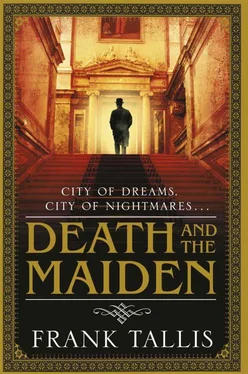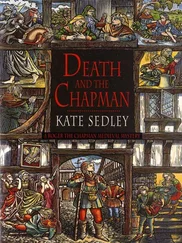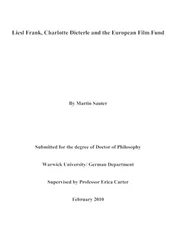Frank Tallis - Death And The Maiden
Здесь есть возможность читать онлайн «Frank Tallis - Death And The Maiden» весь текст электронной книги совершенно бесплатно (целиком полную версию без сокращений). В некоторых случаях можно слушать аудио, скачать через торрент в формате fb2 и присутствует краткое содержание. Жанр: Исторический детектив, на английском языке. Описание произведения, (предисловие) а так же отзывы посетителей доступны на портале библиотеки ЛибКат.
- Название:Death And The Maiden
- Автор:
- Жанр:
- Год:неизвестен
- ISBN:нет данных
- Рейтинг книги:5 / 5. Голосов: 1
-
Избранное:Добавить в избранное
- Отзывы:
-
Ваша оценка:
- 100
- 1
- 2
- 3
- 4
- 5
Death And The Maiden: краткое содержание, описание и аннотация
Предлагаем к чтению аннотацию, описание, краткое содержание или предисловие (зависит от того, что написал сам автор книги «Death And The Maiden»). Если вы не нашли необходимую информацию о книге — напишите в комментариях, мы постараемся отыскать её.
Death And The Maiden — читать онлайн бесплатно полную книгу (весь текст) целиком
Ниже представлен текст книги, разбитый по страницам. Система сохранения места последней прочитанной страницы, позволяет с удобством читать онлайн бесплатно книгу «Death And The Maiden», без необходимости каждый раз заново искать на чём Вы остановились. Поставьте закладку, и сможете в любой момент перейти на страницу, на которой закончили чтение.
Интервал:
Закладка:
Two socialists separated from the crowd and marched over to the hecklers. Insults were exchanged and some pushing and shoving followed. It was obviously going to become ugly. The tram pulled away as one of the mayor’s supporters landed the first punch.
Liebermann repositioned himself against the curve of the wooden seat and raised the collar of his coat. There could be little doubt that in recent months the atmosphere of the city had changed. It was not an ill-defined change but as tangible as the transition from one season to another. Debate in the coffee houses had become more heated and serious than usual. Words like overthrow and revolution surfaced from the general melee with alarming frequency, and tensions sought release too easily in violence.
It must be the forthcoming election, Liebermann thought .
The prospect of yet another victory for Mayor Lueger seemed to have polarised and intensified opinions. It occurred to Liebermann that the uneasy but dependable compromises so typical of Austrian political life might prove unsustainable. If so, what would happen then? He had always ignored his father’s gloomy forecasts. Mendel’s pessimism belonged to a different generation, another age, or so Liebermann had hitherto believed. Now he wasn’t so sure. Perhaps bad things could still happen in this beautiful, cultured city.
Liebermann jumped off the tram and headed north towards Schotts. When he arrived at the music shop he was greeted by the salesman, Herr Shusetka, who presented him with the scores he had ordered on a prior visit, a volume of Dussek piano sonatas and the Mephisto Waltzes by Liszt.
‘I don’t suppose you have anything by a composer called Brosius?’ Liebermann asked.
Shusetka’s brow wrinkled. ‘Brosius?’
‘Johann Christian Brosius.’
‘The name is vaguely familiar.’
‘I heard his serenade for wind instruments played earlier this week. He’s rarely performed these days, but I understand he was once quite popular.’
‘Are you in a rush?’
‘No.’
‘I’ll look in the basement. I presume you’re only interested in piano pieces?’ Liebermann nodded. ‘If anyone needs service, ring the bell.’
Shusetka vanished through a door behind the counter. Liebermann heard a dull knocking sound as the salesman made his descent down a wooden staircase. Another customer entered and looked through the lieder collections, but departed without making a purchase. A considerable period of time elapsed before Herr Shusetka reappeared. When he did, he looked a little dishevelled.
‘You’re in luck,’ said Shusetka, offering Liebermann a slim volume of piano music. ‘I found this.’
Liebermann smiled and read: ‘Three Fantasy Pieces opus eighty-six.’
The pages were yellowing and exuded a dank fragrance. One of them was mottled with green-black mould.
‘I’m sorry,’ said Shusetka, brushing some dust from the sleeve of his jacket. ‘The basement gets damp this time of year.’
Another page was torn slightly.
Liebermann searched for the publication date and found it on the frontispiece: Vienna, eighteen sixty-two. The score was forty-one years old.
‘I’ll take it,’ said Liebermann decisively.
Liebermann walked home through the backstreets. He had not gone very far when he noticed that the stucco wall of one of the buildings had been defaced with black paint. He drew closer and the smudges became crudely executed letters. The slogan read, The money-Jews have taken our money, don’t let them take everything else . Removing a handkerchief from his pocket, Liebermann tried to clean the surface — but the paint had already dried. It occurred to him that many others must have passed this slogan, but no one — so it seemed — had attempted to remove it. He placed the handkerchief back in his pocket and continued his journey, disturbed and apprehensive.
On returning to his apartment, Liebermann hung up his coat and went straight to the music room. He sat at the Bosendorfer and sight-read through some of the easier sections of the Brosius. There were frequent tempo changes, some interesting modulations, and a fondness for canonic devices. The overall effect reminded Liebermann of Robert Schumann.
Liebermann was satisfied with his purchase. He picked up the volume, held it close to his nose, and breathed in the ripe scent. The pages fell open again, and he noticed a dedication: To my beloved, Angelika . He remembered Frau Zollinger mentioning Brosius’s wife. What had she said? A great beauty, but superficial. Frau Zollinger hadn’t liked her. Presumably Angelika Brosius, like her husband, was now dead. That was how Frau Zollinger had spoken about her. Liebermann felt a subtle melancholy seeping into his soul. It was sad, how people passed into oblivion. Physical death was only the beginning. Thereafter began a process of slow attrition, the gradual dissolution of biographical evidence. Angelika Brosius — the talk of salon society — beauty and muse — was almost gone: a dedication at the front of an old score and a few fading recollections in the head of an old woman. What else of her remained in the world?
‘Still,’ said Liebermann out loud. ‘The music has survived.’
He placed the volume back on the stand and began to work on the first piece, this time concentrating hard to make sure he was getting the fingering right.
14
The Lord Marshal and the Emperor were seated at a large table in the conference room, on chairs upholstered with green and gold silk. A rug, decorated with a circular motif, covered most of the parquet floor. The electric chandelier had not been switched on. Instead, illumination was supplied by two candelabras which stood beneath a large oil painting. The scene depicted within the ornate frame was a famous battle that had taken place during the Hungarian revolution.
After some initial business, requiring the signing of certain documents, the two men lowered their voices and leaned towards each other like conspirators. The conversation that followed was elliptical and imprecise. An eavesdropper might have concluded that they were speaking in code.
‘And what did the priest say?’
‘Everything is in order, Your Majesty.’
‘Will he fulfil his obligation?’
‘There is no reason to doubt his loyalty.’
‘Good.’
The emperor was looking more tired than usual. He sat back in his chair and pulled at his mutton-chop whiskers. The lord marshal noticed that the old man was gazing at a white marble bust of Field Marshal Radetzky — a pale visage, hovering in the shadows like a ghostly revenant. Franz-Josef’s hand stopped moving.
It was not for the lord marshal to disturb the monarch’s private thoughts. Being a fastidious observer of court protocol, he never spoke unless spoken to. Minutes passed before the emperor finally stirred. ‘Do dreams have meaning?’
‘I believe, Your Majesty,’ answered the lord marshal, ‘that there are some doctors who interpret dreams. It is a new practice among psychiatrists.’
The emperor sighed.
‘I’ve been having a lot of dreams lately, unpleasant dreams. They always begin here, in the Hofburg, and involve some kind of civil disturbance outside.’ He described his unsettling vision: agitators in Michaelerplatz, the cobbles awash with fire. As he spoke, he kept his gaze fixed on the likeness of Radetzky. The field marshal’s sabre was mounted on the plinth which supported the bust, and the soft lambency of the candles played along its curved edge. When the emperor finished his description, he turned to face the lord marshal and asked, ‘Is there any hope, concerning the election?’
The lord marshal shook his head.
When Lueger had first been elected the emperor had vetoed his appointment. In fact, he had done this not once but three times. The city council had been dissolved and Franz-Josef had ruled Vienna through a board of special commissioners. He had hoped that the people would eventually recognise the folly of installing a demagogue in the town hall. But it wasn’t to be. During the Corpus Christi procession of 1896 Lueger had received more applause than the emperor himself. Reluctantly, Franz-Josef conceded defeat and sanctioned Lueger’s fourth victory. It was a concession that had cost him dearly, a compromise too far.
Читать дальшеИнтервал:
Закладка:
Похожие книги на «Death And The Maiden»
Представляем Вашему вниманию похожие книги на «Death And The Maiden» списком для выбора. Мы отобрали схожую по названию и смыслу литературу в надежде предоставить читателям больше вариантов отыскать новые, интересные, ещё непрочитанные произведения.
Обсуждение, отзывы о книге «Death And The Maiden» и просто собственные мнения читателей. Оставьте ваши комментарии, напишите, что Вы думаете о произведении, его смысле или главных героях. Укажите что конкретно понравилось, а что нет, и почему Вы так считаете.












